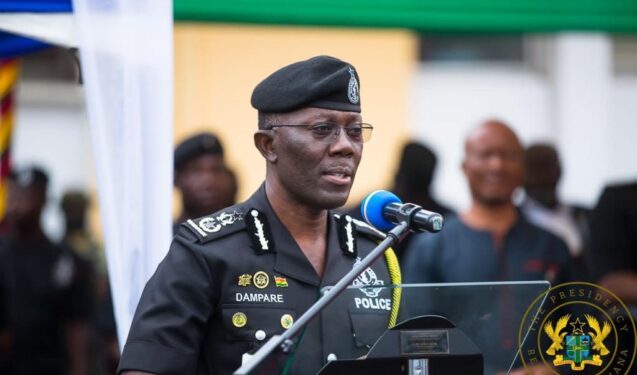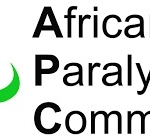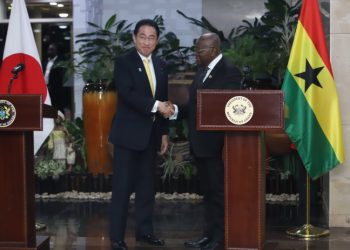- Section 200(1) of the 1992 Constitution states that: “No person or authority shall raise any police service except by or under the authority of an Act of Parliament.”
Again, Articles 200-204 of the Constitution set the legal framework for the police to enforce law, protect lives and property throughout the territorial boundaries of Ghana. Additionally, Section 51(1) of the Police Service Act, 1970 (Act 350) states that “it shall be the duty of the police to prevent and detect crime, apprehend offenders and maintain public law, order and safety of persons and property.”
However, these Acts failed to articulate a regulatory guideline for police conduct. This gap was somewhat addressed in the Ghana Police Manual launched in May 2010.
Police officers and responsibilities
The 1951 Young report defined a police officer as a citizen serving the office of a Constable, who has certain powers and liable to certain responsibilities. He or she derives his or her authority from the Sovereign/the State that he or she serves.
Constitutionally, the police perform several obligations. They include police station operations, patrolling, traffic control, crime prevention and control, intelligence gathering, forensic analysis, research and development, and general and technical functions. Some of the regular responsibilities of the mandate are: Institute criminal charges; invite, arrest and/or detain suspects (with or without warrant or trial) in police custody for not more than 48 hours, and per Article 14(3) of the 1992 Constitution shall bring the suspect before a court of competent jurisdiction.
Again, the police receive confession statement from a suspect, grant bail to a suspect in police custody, interrogate a suspect and/or issue caution statement. Further, the police are vested to intercept communication, conduct identification, conduct lawful entry, search and seizure or surveillance, and collect admissible evidence. The police are also empowered to invade privacy, use reasonable force, confiscate property, freeze asset, and interfere with movement, life and liberty of a person. The police are at liberty to choose the methods and means of operation to enforce these responsibilities, law and order.
Independence of the police service
Globally, the police service lacks a legal sovereignty; a phenomenon that cripples neutral and professional police service in law maintenance. The Ghana Police Service is not immune from this global reality. The police in the African Colonies were historically and culturally constructed. In Ghana, the police service was formed by the British Colonialists primarily for political and economic exploitation. As a result, the police became the agents and handmaiden of the imperialists for controlling the citizens through “indirect rule” using the chief as the bridgeheads. The police were unfriendly, un-civilian and alien to their own countrymen and women through colonial command.
The imperialistic posturing affected the legitimacy and independence of the police. Their authority as true native representatives was weakened. The police became unattractive to the citizens particularly the elites and affluent who considered them as traitors of their race.
After independence in 1957, President Kwame Nkrumah launched the Africanisation policy which included police transformation. Nkrumah renamed the Gold Coast Regiment as the Ghana Army, and the Gold Coast Police Force as the Ghana Police Service. The construction and character of the police service did not change much. The orientation of the police service was heavily rooted in colonial norms. The police service became an appendage to post-independence government, and not an institution working for the citizens. The service was infiltrated by the loyalists of the Nkrumah-led Convention People’s Party (CPP) government who snooped on the Intelligence Branch of the police. Police reform was a mere change of institutional arrangements, and succeeded minimally in domesticating home-grown police service as the wheels of security sector governance.
The police service continued to be centralised after the birth of the 1992 Constitution. The appointment of Inspector-General of Police (IGP) became executive preserve of the President of the Republic. Balancing the act of protecting the interest of the appointing authority and by extension, the political regime and the interest of the State remained a difficult task for the IGP and the police service.
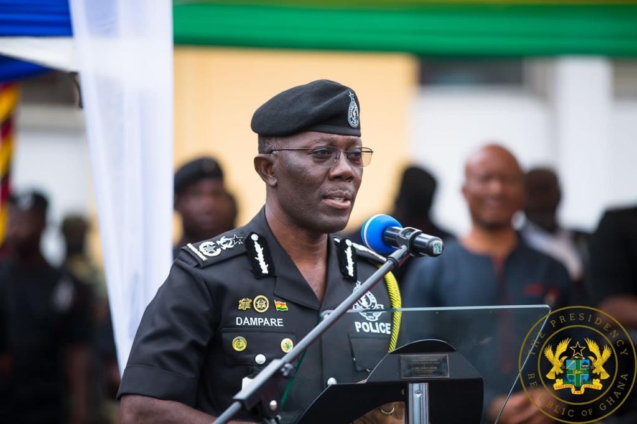
This often led to the politicisation of the police and the service they render to the public. Throughout the Fourth Republic, successive governments have recruited party foot-soldiers and confidants into the police service. The politicisation suffocates the neutrality, autonomy, professionalism and accountable police service to the public.
Appointment of the IGP and security of tenure
Article 202 Clause 3 and Article 203 Clause 1 give executive orders to the President to appoint the IGP in consultation with the Council of State and the Police Council. The powers to appoint and remove the IGP offer a caveat for political interference in the affairs of the Police Administration. In some cases, successive Presidents have compelled the IGP to vacate post or contract extended as the position of IGP does not have security of tenure.
For example, IGP Mr Patrick Kwarteng Acheampong was 57 years old (three years to retirement) when he was compelled by President Prof. Evans Fiifi Atta Mills-led National Democratic Congress (NDC) government to resign on 28 January 2009 after the political transition. Again, IGP Mr John Kudalor was directed by President Nana Addo Dankwa Akufo-Addo-led New Patriotic Party (NPP) government to resign on 25 January 2017 though he had one year to retire. In other cases, IGPs who were due for retirement were given contract to stay on the job, an example being Mr David Asante-Appeatu. The political meddling affects security of tenure of the leadership and administrative autonomy of the police service. The issue speaks decisively to the extreme form of winner-taking-all system of governance practiced in Ghana.
The intermarriage between the police and political regime often leads to reciprocal loyalty. Such loyalty offers pathway of a culture of undermining between ranks and file of the police. It also sows seed of politicking in favour of the government but weakens the independence and legitimacy of the police service. It is recommended that the independence of the IGP must be insulated from political interference through a security of tenure across political regimes which would ensure that the appointment is transparent, consultative and by parliamentary approval.
Implications for law maintenance
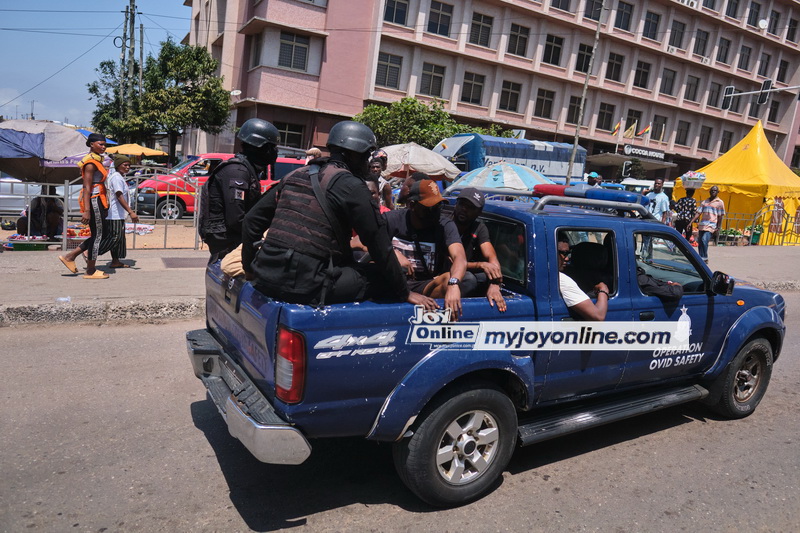
The executive power of the President to appoint or remove the IGP and some members of the Police Council and by extension, the Attorney General and Minister of Justice, the Chief Justice, and the Special Prosecutor has raised public concerns about the insulation of these public office holders from political interference, which arguably choke their autonomy and effective law enforcement. These appointees hold constitutional and sometimes discretionary powers to adjudicate and prosecute criminal matters.
It is an open secret that both the NDC and the NPP have used the appointing powers to unduly influence police governance and legitimise their holding powers. Ironically, both the NDC and the NPP are suspicious of the police service once they lose political power.
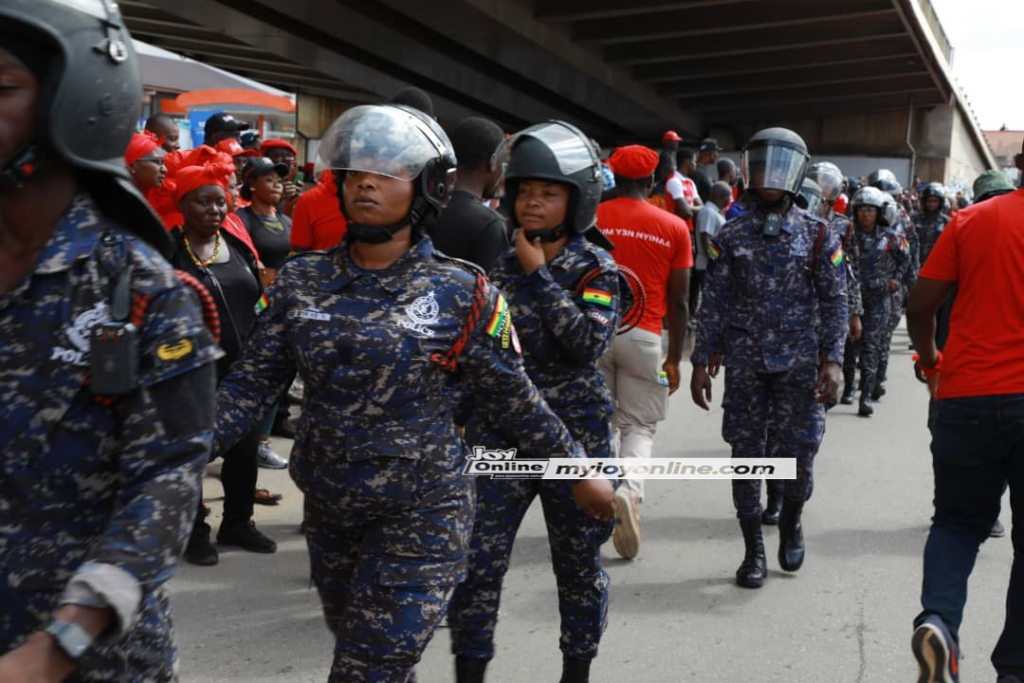
The political interferences make the police administration the weaker link in the power holding arrangement, that at times, officers notice an appearance of wrongdoing, yet feel helpless, because of structural defects and chain of command which ultimately rest with political hands and the appointing authority. For example, the police sometimes face the challenge of publishing names of high-profile personalities associated with the ruling government who engage in alleged election-related crimes. In principle, the ruling coalition is aware of the structural defects of the police service and implications for law maintenance. Yet, the political will to address them is either minimal or intentionally absent.
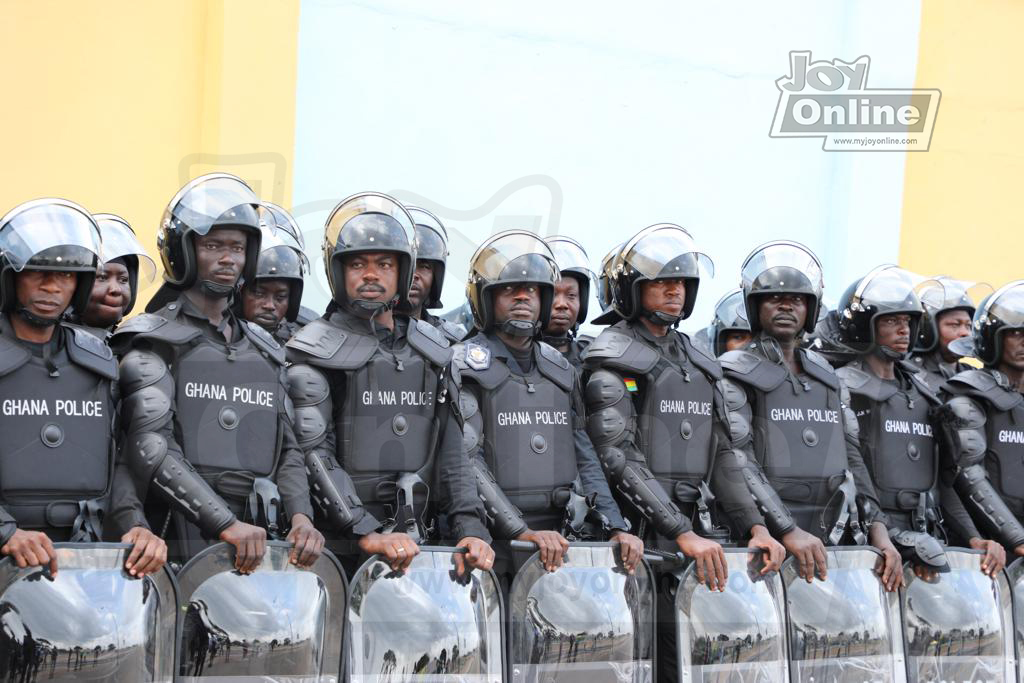
Again, often, one observes that senior officers at the Police Headquarters or Regional Command who are outspoken with the truth are perceived to be anti-government. Such officers are often transferred or undergo job rotation as a form of quelling them into submission, regardless of the competencies they possess to advancing the course of law enforcement. It is reasoned that such institutional politicking would continue from medium-to-long term as long as the IGP is appointed by the President. The appointment of IGP principally remains a political convenience for the pursuit of regime security over professional policing. And attempt by any IGP to turn this around and overhaul the police administration will naturally face a stiff opposition within and without the police service. However, that achievement by any IGP would be remarkable for the pursuit of a professional and world-class police service in Ghana.
Some challenges of police service
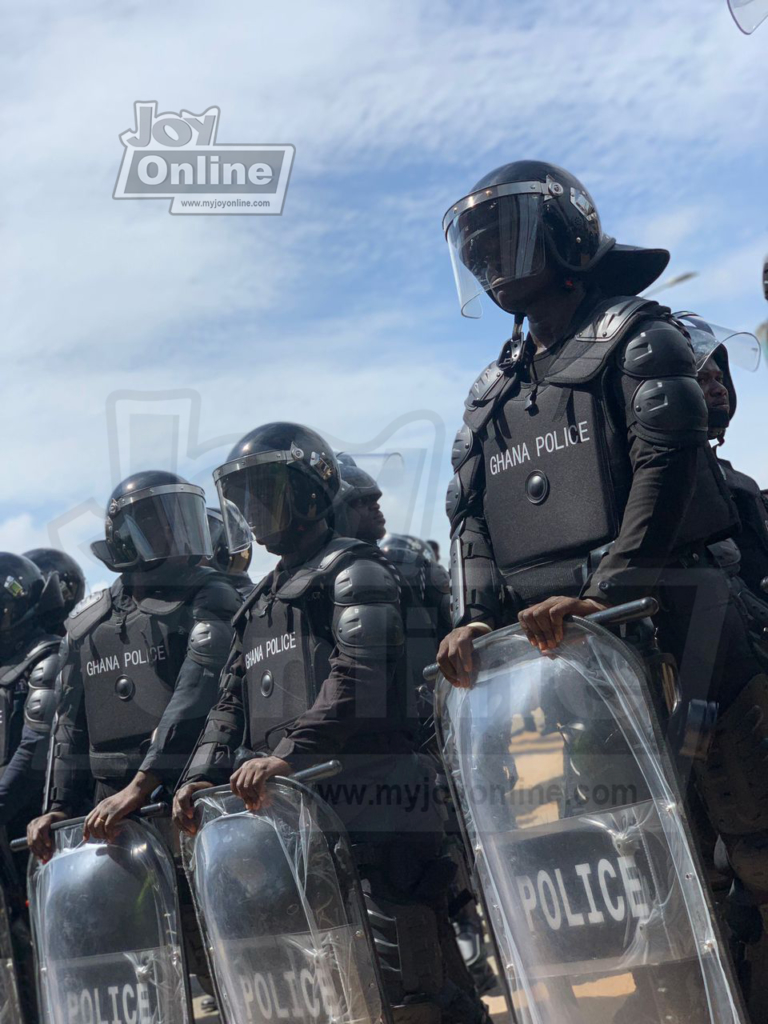
Apart from the constitutional challenges outlined above, the police service is confronted with a number of institutional difficulties that inhibit performance, some of which are self-healing and self-correcting. These include: Inability to meet police-citizen ratio of 1:500 due to inadequate human resource, legitimacy deficit and trust-deficit. Others are excessive use of force, selective law enforcement and mistreatment, police collusion with demonstrators and human rights abuse. Again, the police service is confronted with misconduct and indiscipline among some officers and corruption. Additionally, there is weak decentralisation from the centre to lower echelons of command and deficit in the deployment of information communication technological gadgets. Also, there is weak cooperation from the public which affect reliable intelligence gathering on rising crime, community violence and lawlessness, and poor remuneration which affects officers’ morale.
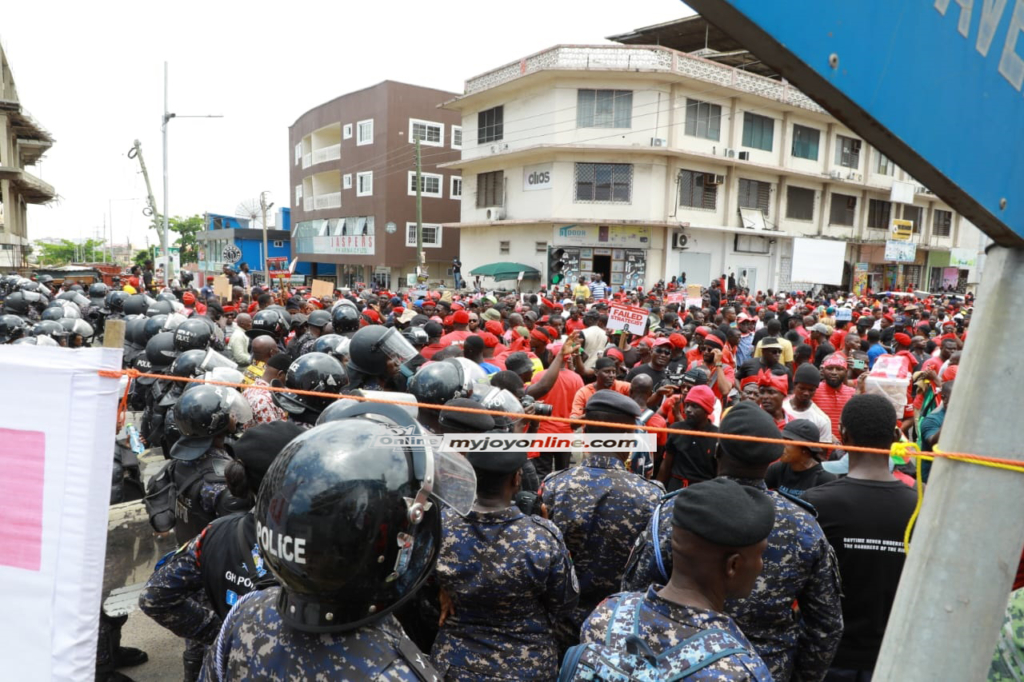
Prospects for professional policing
The Ghana Police Service has gained recognition for maintaining security, public safety and peace building. However, this recognition is yet to be fully democratised into a world-class professional policing. The willful puzzle between the independence of the police service and the political class has implications for public trust in the police administration and law enforcement. In May 2010, the Ghana Police Service envisioned a five-year strategic plan that will turn the service into a world-class organisation. The strategic direction spelt out the principles of professional policing. This is yet to be realised after a decade of launching the vision.
It is timely for Ghana to fashion out people–centered policing enjoining the police to be cooperative, normative and behave pro-socially in law enforcement. It also implies that citizens have a duty to obey the police subjecting their judgments to orders and verdict of the police in law enforcement. This also means voluntary obedience of obligation by the citizens rather than fear of punishment or anticipation of reward.
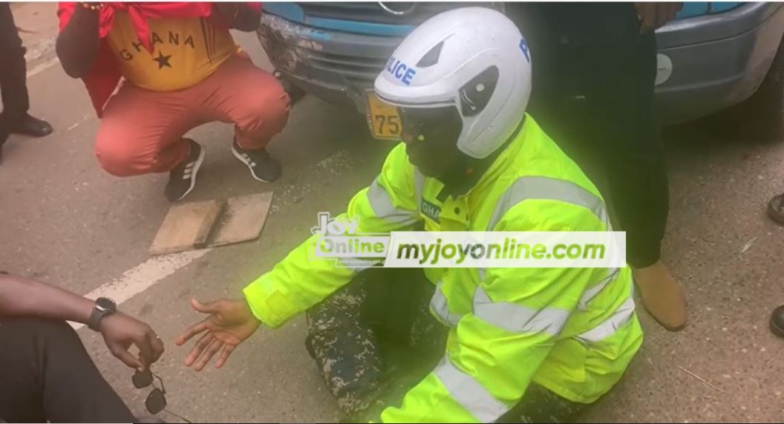
However, it must be noted that, the rights conferred on the police by the public to enforce the law are not automatic. The behaviour of the police forms the basis for producing law-abiding citizens and willingness to cooperate with the police to maintain the law. This perspective reinforces the legal, political and moral philosophical argument of why people ought to obey the State and by extension the police.
The police should also leverage on smart technologies and platforms for law enforcement. These include body-worn cameras, vehicle-mounted cameras, video analytics and integration of traffic cameras for incidence detection and analysis. Others are GPS enabled tracing, installation of panic button in public places, SOS mobile application and police alert systems on crime, command and control platforms for intelligence monitoring, and real-time event reporting.
–
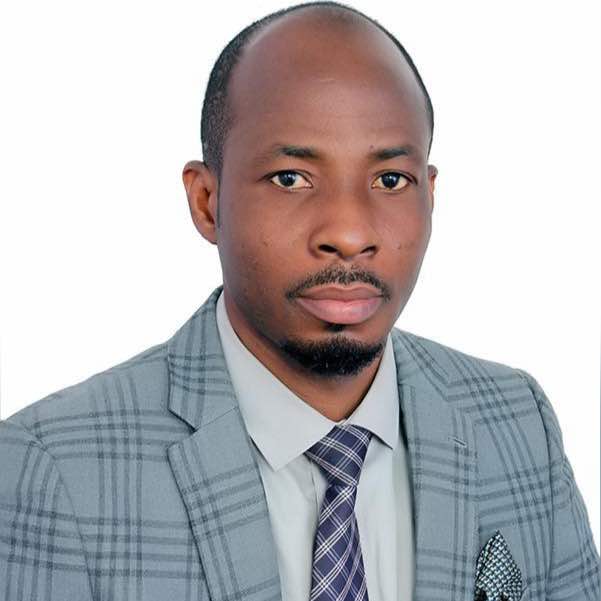
The writer, Dr. Kojo Impraim, holds PhD in Human Security, Democratic Policing and Public Safety & he is the Director of Research and Advocacy at the Media Foundation for West Africa. Email: [email protected].
DISCLAIMER: The Views, Comments, Opinions, Contributions and Statements made by Readers and Contributors on this platform do not necessarily represent the views or policy of Multimedia Group Limited.
- President Commissions 36.5 Million Dollars Hospital In The Tain District
- You Will Not Go Free For Killing An Hard Working MP – Akufo-Addo To MP’s Killer
- I Will Lead You To Victory – Ato Forson Assures NDC Supporters
Visit Our Social Media for More

